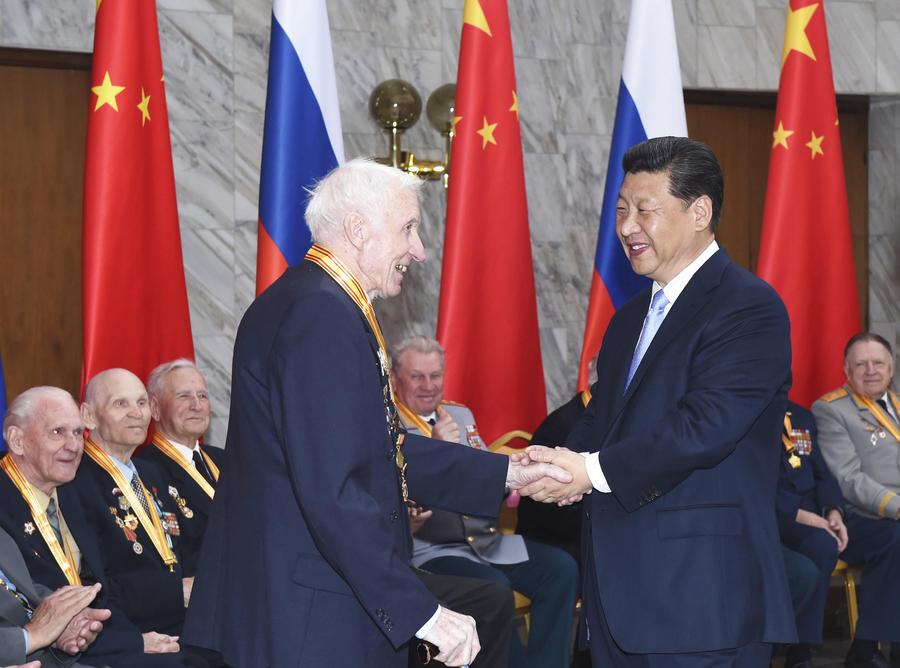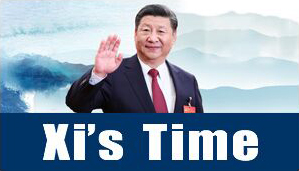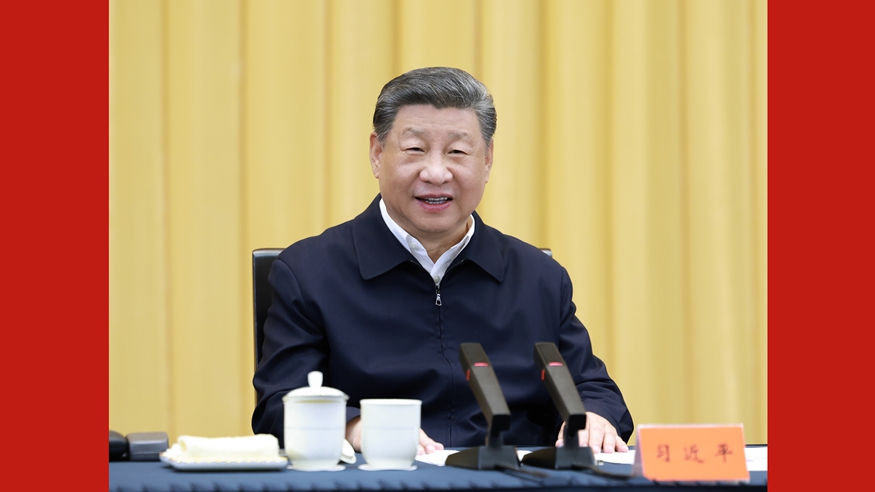Xi's historical insights into war and peace
Source: Xinhua
Editor: huaxia
2025-05-05 21:19:15
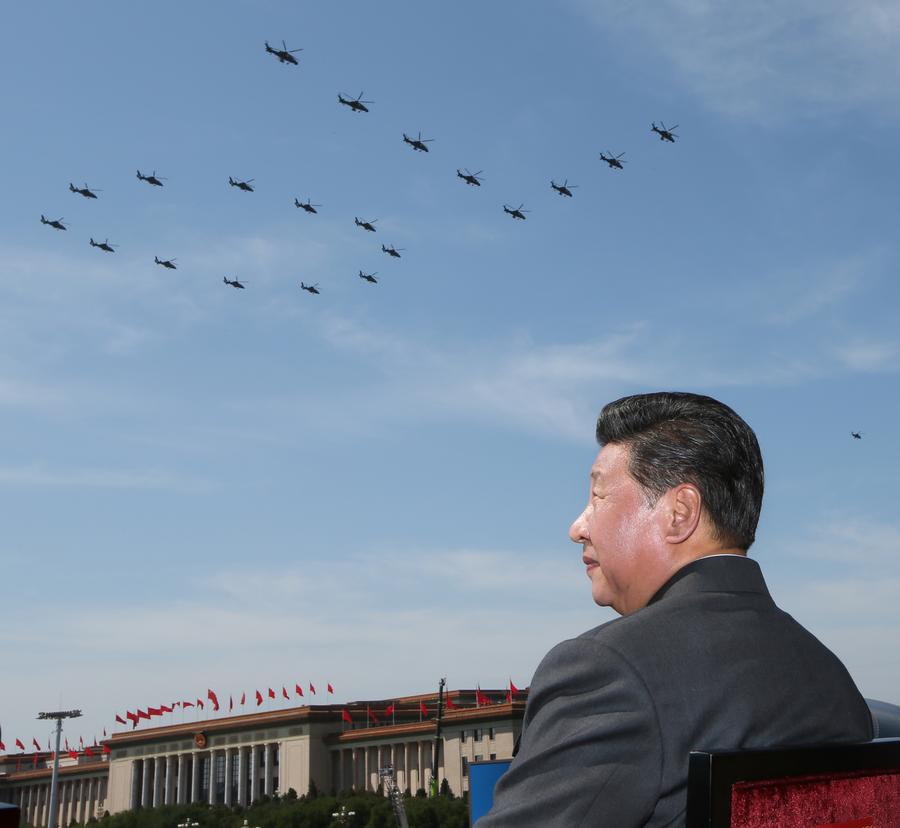
BEIJING, May 5 (Xinhua) -- In the stately Conference Building at the United Nations Headquarters in New York City, a 65-inch-tall resplendent bronze vessel gleams under soft light, its cloisonne enamel blazing in vibrant Chinese red.
The "Zun of Peace," presented by Chinese President Xi Jinping in September 2015 as a special gift for the United Nations' 70th anniversary, is not merely a delicate artifact. It embodies the aspiration and conviction of the Chinese people to seek peace, development, cooperation and win-win outcomes, Xi said at its unveiling.
A decade later, as the top Chinese leader travels to Moscow to celebrate the 80th anniversary of victory in the Great Patriotic War, his presence both carries the weight of history and reaffirms a vision of the future.
Leading a nation always aspiring for peace and harmony in its long history and further strengthened by its battles against militarism, imperialism and fascism in its recent past, Xi commands a unique insight into the value of peace, and has steadfastly championed the building of a peaceful world, a cause of great urgency given the tensions and conflicts on the global landscape today.
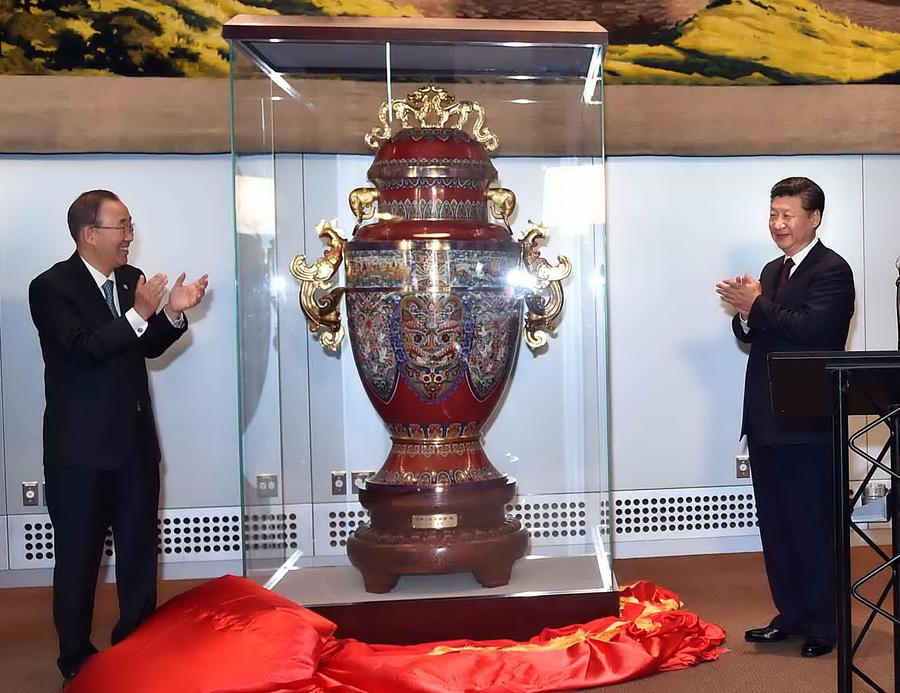
Xi sees history as a mirror from which humanity should draw lessons to avoid repeating past calamities.
This year marks the 80th anniversary of victory in what is commonly known in China as the World Anti-Fascist War or, more globally, as World War II. Almost every part of the world was involved, and more than 100 million were killed or wounded in what was described as the most destructive conflict in human history.
The bravery and tremendous sacrifice of the Chinese people played a decisive role in defeating Fascist Japan and offered strategic support to the Allies on the European and Pacific battlefields.
"History has told us to stay on high alert against war, which, like a demon and nightmare, would bring disaster and pain to the people," Xi once said. "History has also told us to preserve peace with great care, as peace, like air and sunshine, is hardly noticed when people are benefiting from it, but none of us can live without it."
This historical observation features prominently in Xi's unrelenting pursuit of peace. He has repeatedly reiterated China's commitment to peaceful development, pledging that China will never seek hegemony, expansion or any sphere of influence, no matter how strong it may grow.
During a 2014 visit to France, Xi reshaped Napoleon's metaphor of China as a "sleeping lion" that would shake the world upon awakening. "Now China the lion has awakened. But it is a peaceful, amicable and civilized lion," Xi said when illustrating the peaceful dimension of the Chinese Dream.
Xi's philosophy stems from the millennia-old Chinese culture. An avid reader of traditional Chinese classics, he once expounded how ancient Chinese wisdom views war and peace by quoting "The Art of War," a Chinese classic written more than 2,000 years ago.
The book's key message "is that every effort should be made to prevent a war and great caution must be exercised when it comes to fighting a war," Xi said when delivering a keynote speech in the UN Office at Geneva in 2017.
Xi's view on prudence in warfare is also reflected in his exchanges with foreign leaders and officials.
"It has long been known that the real experts on military affairs do not want to employ military means to solve issues," he quoted a Chinese aphorism when meeting with then U.S. Secretary of Defense James Mattis in Beijing in 2018.
A clear manifestation of Xi's reflection is to cherish history and honor heroes. "A nation of hope cannot be without heroes," Xi once said. Every year since 2014, Xi has paid tribute to China's fallen heroes on Martyrs' Day, which falls on Sept. 30, a day ahead of the country's National Day.
In 2015, when China celebrated the 70th anniversary of its victory in World War II, Xi presented medals to Chinese veterans and representatives from Russia and other countries who assisted Chinese soldiers on the battlefields.
Nikolai Chuikov, the grandson of Soviet General Marshal Vasily Chuikov, was among those who received a peace medal from Xi. "Of all the honors I have won, I hold the highest regard for the peace medal," he said.
